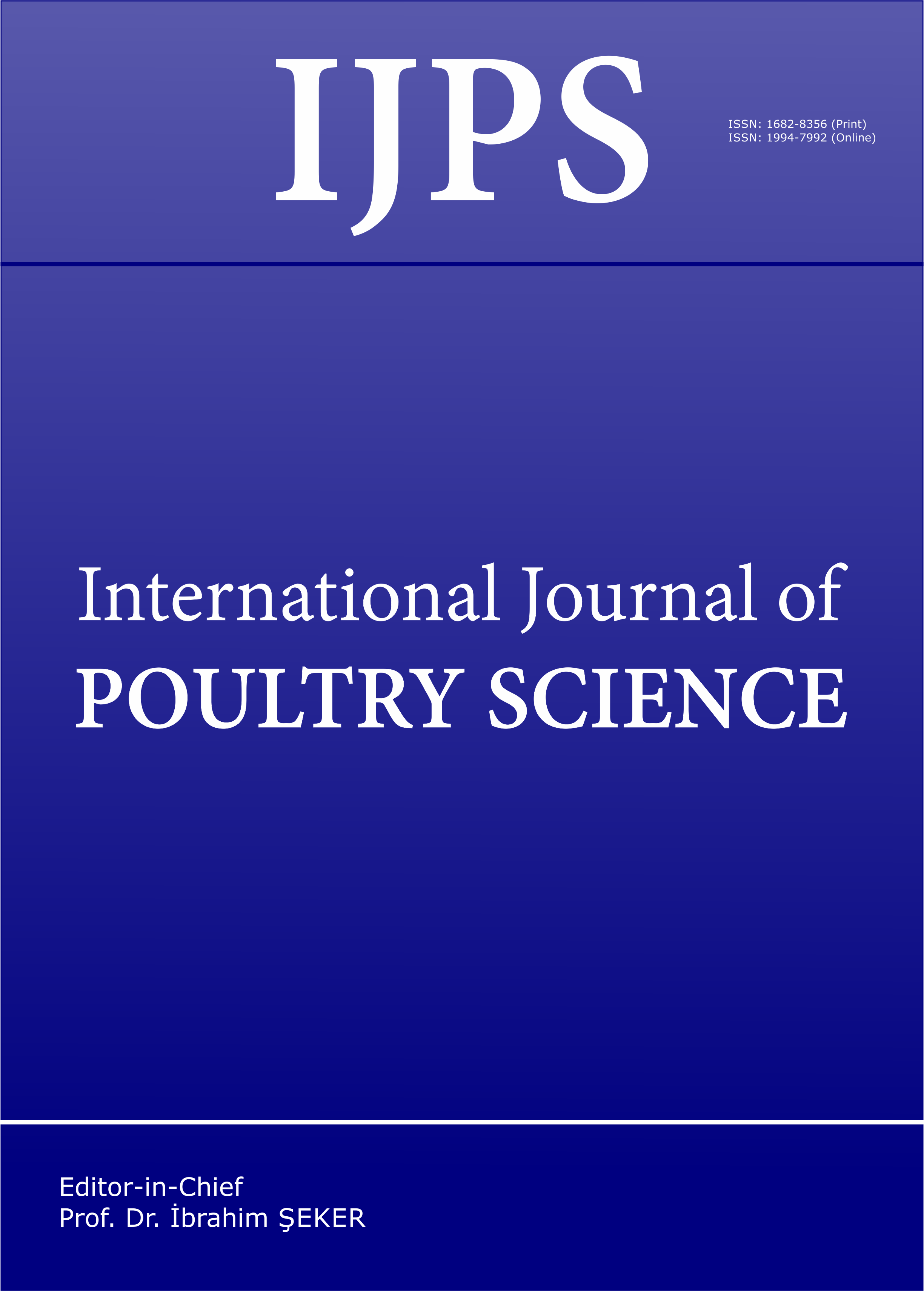Effect of Varying Levels of Leucine and Energy on Performance and Carcass Characteristics of Broiler Chickens
DOI:
https://doi.org/10.3923/ijps.2008.696.699Keywords:
Broiler diets, crude protein, dieary enegrgy, leucineAbstract
The experiment was conducted to evaluate the influence of excess leucine, in broiler diets containing varying levels of energy. In a 2 x 2 factorial arrangement, the effects of leucine levels and dietary energy on performance and carcass characteristics of Cobb broiler chickens from 3 to 6 weeks of age were tested. Dietary treatments consisted of two levels of leucine i.e. 0 and 0.5% with two of metabolizable energy (ME) i.e. 3200 and 3000 kcal/kg, respectively. Reducing dietary energy decreased weight gain up to 7.4% (P<0.05). Decreasing dietary energy had no significant effect on feed consumption and feed to gain ratio and carcass characteristics. Increasing dietary leucine had no significant effect on feed consumption, weight gain and feed to gain ratio and carcass characteristics, but significantly increased carcass weight up to 9% (P<0.05). Dietary treatments had no significantly effect on mortality. Further research is needed to evaluate the potential impact of excess leucine in diets with reduced levels of crude protein.
Downloads
Published
Issue
Section
License
Copyright (c) 2008 Asian Network for Scientific Information

This work is licensed under a Creative Commons Attribution 4.0 International License.
This is an open access article distributed under the terms of the Creative Commons Attribution License, which permits unrestricted use, distribution and reproduction in any medium, provided the original author and source are credited.

